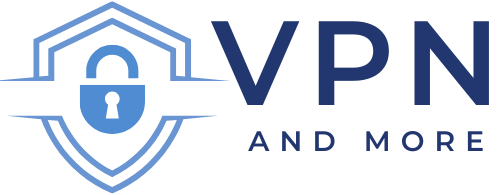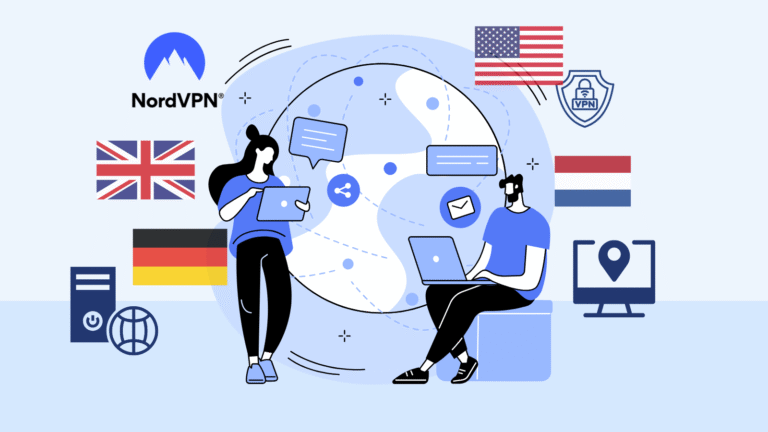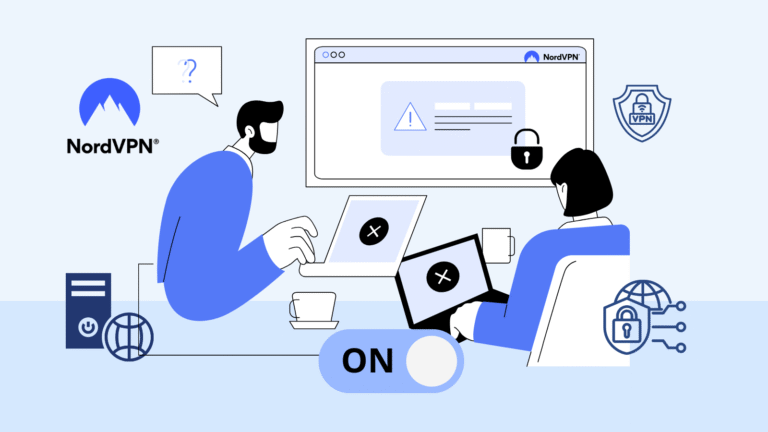You want to start using a VPN, but you don’t want to get in trouble. So, is a VPN legal? Yes, VPNs are legal in most countries around the world. But be careful, they’re not legal everywhere. In some countries, or under certain circumstances, using a VPN can be restricted or even illegal.
It all depends on where you are and what you do with your VPN. If you’re not aware of the rules, you could run into serious trouble, exactly what you’re trying to avoid. You simply want to protect your privacy and stay safe from identity theft, fraud, or online surveillance. And that’s perfectly reasonable.
So here’s the short answer for those who just want to know if it’s legal in their country. VPNs are legal in the EU, US, Canada, Australia, New Zealand, Japan, and most other democratic countries. If you live in one of these places and use a trusted VPN provider like NordVPN, you’re good to go. As long as you use it responsibly.
Are you still unsure whether it’s legal in your country, or what you can and can’t do with a VPN? Scroll down to check the countries where it’s illegal, and learn exactly what is, and isn’t allowed when using a VPN.
Overview
- When Is A VPN illegal?
- Using a VPN for Illegal Activities
- Why VPNs Are Legal
- Why Do Some Countries Ban or Restrict VPN Use?
- Can You Get Fined Or In Trouble for Using a VPN?
- How VPN Usage Is Detected And How Bans and Laws Are Enforced
- Frequently Asked Questions (FAQs)
When Is A VPN illegal?
If we look at the exact truth, a vpn is never illigal on its own. Its al about where its illigal to use because of government restrictions, or the purpase of where the vpn is used for. And this differs for each country, some country’s for instance do allow the use of a vpn as long as its approved by the government. And in most cases this means it has to store data so the government can look into the activity of people whenever they want to. But i’ll explain more about this later.
Countries Where VPNs Are Illegal or Restricted
We’re going to talk about 13 countries where using a VPN is illegal or where there are active restrictions with serious consequences for breaking them. Later in this blog, I’ll explain why some countries allow certain VPNs but not others, and what makes the difference. But first, let’s start with all the countries where VPNs are illegal or restricted.
China
China is one of the countries where VPN use is not completely illegal, but only if you use government approved services. Using a VPN like NordVPN or ExpressVPN is considered illegal. However, China has already made it difficult to access these providers by blocking their websites and removing their apps from Chinese app stores. If you do manage to access them, you risk receiving hefty fines.
That said, the real legal danger lies with VPN providers that fail to comply with local regulations, they face the risk of actual prison sentences. Chinese citizens, for example, are not allowed to access services like Google, YouTube, Facebook, Instagram, and many other foreign platforms.
China enforces VPN restrictions using a strict system called Deep Packet Inspection, which detects and blocks unauthorized VPN traffic. This makes VPN use potentially risky for tourists as well, although in practice, there have been very few serious issues reported involving foreigners. As long as you use a high quality VPN with features like obfuscated servers, which hide the fact that you’re using a VPN. You are less likely to run into trouble.
Russia
Just like in China, only government-approved VPNs are allowed in Russia. The government wants to prevent citizens from accessing things like independent news outlets, political opposition websites, or information related to LGBTQ+ topics. Because of this, all major VPN providers have been banned in Russia. For example, NordVPN once had servers in Russia, but in 2019, the Russian government began demanding access to those servers. As a result, NordVPN shut them down. Furthermore, any citizen caught using a VPN to access unauthorized content can be fined.
Belarus
VPNs are completely illegal in Belarus, along with the Tor network. Internet use is heavily monitored, and users who violate the rules risk receiving fines or, in the worst-case scenario, facing criminal prosecution.
For tourists planning to visit Belarus, it’s important to know that there are no exceptions for foreigners. They also face the risk of hefty fines or other consequences.
Iran
A VPN is legal in Iran, but only if it is approved by the government. Other VPNs, such as NordVPN, are not allowed because they do not share users private data with the authorities. This is something that government approved VPNs are required to do. While it is technically possible to use a VPN like NordVPN with obfuscated servers to hide the fact that you’re using a VPN, this always comes with its own risks and potential consequences.
United Arab Emirates (UAE)
In the United Arab Emirates, using a VPN is not a problem, and you are free to choose which VPN you use. There are no restrictions on the VPNs themselves. However, the country is very strict about what you do with a VPN. If you use it for the wrong purposes, you risk a fine of at least $136,000.
This includes not only obviously illegal activities, but also actions like circumventing internet censorship in the UAE. For example, you are not allowed to access blocked websites, sertain social media platforms, or stream content that is not permitted in the country.
Although the UAE uses vague and broad wording in its laws about what exactly is illegal, it’s clear that the government does not particularly encourage the use of VPNs.
Oman
In this country, there’s a bit of a gray area when it comes to using a VPN. However, in principle, VPNs are not legal in Oman. The government does not want communication data to be encrypted.
That said, larger institutions are allowed to use VPNs for their organization, as long as the VPN is approved by Oman’s Telecommunications Regulatory Authority (TRA).
Turkmenistan
This might be one of the most extreme cases of banning VPNs in a country. Turkmenistan has made using a VPN in any form illegal. The government is very strict when it comes to censoring what citizens can access online. The state also actively monitors VPN usage. If you’re caught using a VPN, you risk a fine or, in some cases, even a prison sentence.
North Korea
This country is comparable to Turkmenistan. VPNs are not just restricted, they are completely forbidden. Citizens only have access to a domestic intranet network known as Kwangmyong, where only government approved websites and information are accessible.
In general, the majority of the population doesn’t even have access to the internet or telephone services. However, if someone does have access and tries to use a VPN against the rules, it can lead to serious consequences such as heavy fines or even imprisonment.
Iraq
In Iraq, using a VPN is legal, but not for all purposes. You can use a VPN for personal activities such as regular browsing or streaming, but not for accessing political or blocked content. Iraq also tends to block VPNs during times of political tension or public demonstrations. There isn’t much official information available about strict laws or regulations, but the government is clearly not very supportive of VPN usage.
Turkey
The rules in Turkey are quite similar to those in Iraq. VPN use is not forbidden, but certain VPN providers have been blocked. The government strictly regulates what people are allowed to access and also censors political and other sensitive content, much like Iraq. However, tourists rarely run into trouble when using a VPN, and if you’re unsure, you can always use a VPN with obfuscated servers to stay more discreet.
Egypt
When you’re trying to access blocked websites in Egypt, there’s a chance you might get into trouble. Although using a VPN isn’t illegal, the authorities are very strict about what you can and can’t do with one. For example, they have laws that allow them to track people who use VPNs to access prohibited information or communication. So, if you’re using a VPN in Egypt, make sure to use a double VPN or other extra security features.
Uganda
Uganda has a slightly different situation compared to most countries when it comes to VPN use. It’s not illegal, but the government does try to block them through internet providers. Since 2018, Uganda introduced a tax for anyone using social media. To avoid this, people began using VPNs. That’s why the government is trying to block the use of a VPN. But this is more about enforcing the tax than censorship.
Myanmar
This might be one of the strangest situations of all, because Myanmar hasn’t officially made VPN use illegal, but they act as if it is. They actively try to block VPN providers and do punish people who are caught using a VPN to access censored information. You could say it’s a bit of a grey area.
Using a VPN for Illegal Activities
If you live in a country where VPNs are allowed, you can use one without any problems. However, this obviously doesn’t mean you can use a VPN for anything you want. Every country still has its own laws that define what is legal and illegal. Doing something illegal while hiding behind a VPN doesn’t suddenly make it legal.
For example, downloading copyrighted material like movies or photos is still illegal, even if you use a VPN to do it. So always remember, you won’t get in trouble for using a VPN, but for what you do with it.
But what about streaming your favorite movie on Netflix with a VPN?
Is Using a VPN for Streaming Legal?
Yes, using a VPN for streaming is legal. As long as you’re not watching illegal movies or series through unauthorized streaming platforms. And obviously, you should not live in a country that forbids the use of a VPN to access content from outside its borders. But if you live in a country where VPN usage is legal, you’re good to go.
Changing your virtual location to access different content is not illegal by law, so it’s generally not a problem. However, there are a few minor risks you should be aware of. Most streaming platforms prohibit the use of VPNs to access content outside your region. If they detect that you’re using a VPN, you’ll usually receive a message asking you to turn it off.
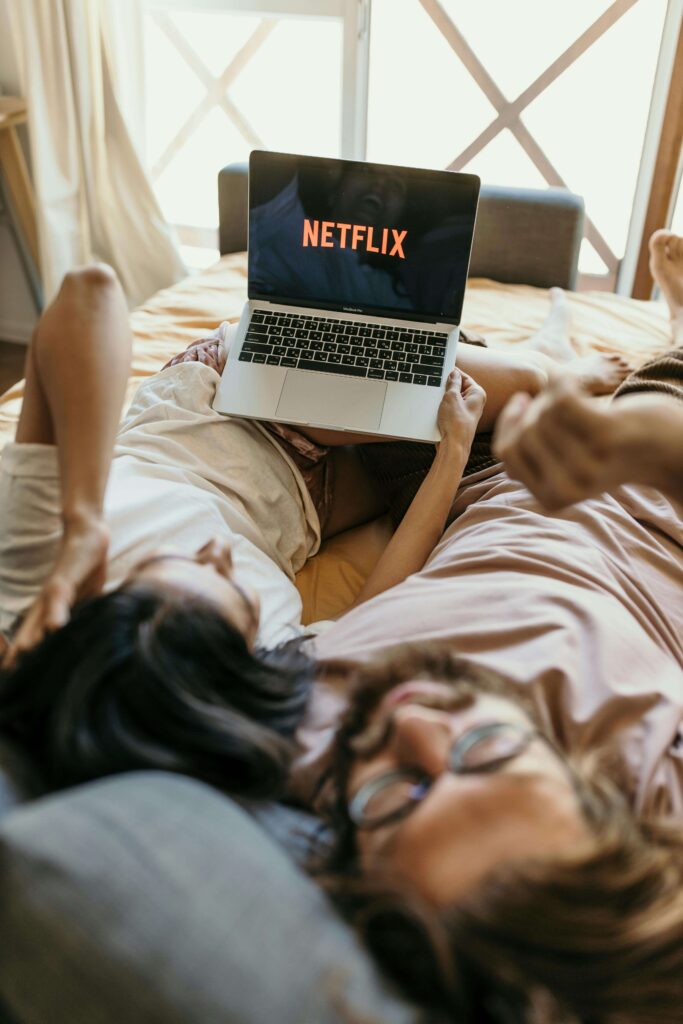
This is because it violates their terms of service, not the law. In rare cases, a streaming provider may choose to suspend your account, but in practice, this almost never happens. So you can start streaming your favorite movies right away!
Is it legal to use A VPN For Crypto, Binance, Or Trading?
Yes, using a VPN to buy crypto on an exchange like Binance is legal in most cases. However, there are a few important conditions. Just like when using a VPN for streaming, you must reside in a country where VPN usage is legal, and it must also be legal to buy cryptocurrency in your country.
Binance, for example, is very strict about users attempting to bypass geo restrictions with a VPN.
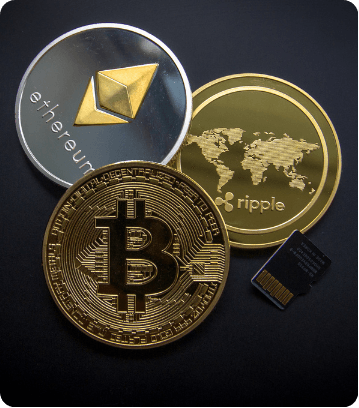
Since every country has different regulations regarding crypto, Binance provides access to different features depending on local laws. If you try to access features (like futures trading) that are not allowed in your country, Binance may detect this and block your account, which could result in losing access to your funds.
However, if you’re simply using a VPN to enhance your privacy and you’re connected to a server in the country where you actually live, there is generally no issue, and using a VPN in that way is legal.
Why VPNs Are Legal
In most democratic countries, people have the right to privacy, which is protected by law. Since a VPN is simply a tool, there is no valid reason to make it illegal by itself. A VPN helps people stay more secure and private online by encrypting their internet traffic. This aligns perfectly with the legal right to protect one’s privacy.
VPNs are also widely used by large companies to safeguard sensitive information, which is another important reason why they are legal in many countries. In fact, this is why some governments like in Oman, at least allow VPN use for major institutions. I’ll discuss this further in the last point about legal VPN use.
But first, let’s explore the other common legal reasons why people use VPNs.
What People Legally Use A VPN For
Everybody has their own reasons for using a VPN, one person might use it for privacy protection, another to watch their favorite movies on Netflix, and someone else to safely connect to public WiFi without the risk of it being compromised. But there are 8 common reasons why people use a VPN, and I’m going to break them down for you.
Protecting Your Online Privacy
A VPN encrypts all your internet traffic, which means no one can see what you do online. This is something many people find very important, because your internet provider can see everything you do, and may potentially share this information with third parties. And those third parties may not always be trustworthy.
Some people think that only those who have something to hide care about online privacy, but that’s clearly not true. Without protection, others can see everything you do online, including your payment details when you shop online, your passwords when you log into accounts, or even your location and search history.
All of this information can be used for fraud, identity theft, or worse. So protecting your privacy is not just about hiding something, it’s about keeping yourself safe from possible risks in the future. Everyone should take privacy seriously and use tools like VPNs to help stay secure online.
Safe Internet Use On Public Networks
This is somewhat related to the first reason why people would legally use a VPN, but it’s a bit different. You would want to protect your privacy, as I mentioned in the first point. However, when you use a public WiFi connection, there is an even greater risk of hackers tracking your internet traffic. This assumes your home router is well protected. Otherwise, it’s just as easy for hackers to compromise your own network as well.
When you use public WiFi, the risk of it being a fake network or compromised by a hacker is quite high. Also, the network administrator of that network could see what you’re doing. Therefore, all your data, as I mentioned in the first point, is even more vulnerable.
Avoiding Tracking And Ads
Companies that track your data for personalized ads use your location and device settings to identify whether it’s you browsing the internet. A VPN changes your IP address and, therefore, your apparent location. It can also alter some of the device information visible to trackers since you’re connected through a VPN server. This way, you’ll receive far fewer targeted ads. Some VPNs even offer a built-in ad blocker.
By reducing the amount of information you expose to advertising networks, they are less able to build an accurate profile of you. These companies are known for creating a digital footprint of you as an internet user, which they can then sell or use for targeted advertising.
Up until now, it’s been largely about protecting your online data with a VPN, but that’s not all it’s used for. So let’s take a closer look at what else a VPN is used for
Access To Neutral Search Results
Because search engines like Google create a digital footprint of you, they know exactly what you’ve searched for, what you’ve clicked on, and in which country you’re located. Based on all this information, they personalize your search results according to your past behavior. This means you are not seeing neutral or unbiased search results.
For journalists or researchers, this lack of neutrality can be a serious concern. But it can also affect everyday users in other ways. For example, by influencing the prices you see for flight tickets or hotels. Many online prices are based on your location, your interests, and how often you search for a specific item, which signals demand.
Using a VPN to change your location can sometimes save you hundreds of dollars by showing you lower prices available to users in other countries. It might sound unfair, but this is one of the perfectly legal and common reasons people choose to use a VPN.
Free Internet Abroad
It’s a common concern that when you’re on vacation or a business trip, you can’t access certain websites or apps in that country. This is because some countries have internet restrictions, which means you can’t use the services you’re used to from your home country. And this is exactly what many people use a VPN for: they can set their VPN to their home country to keep watching their favorite movies, use their banking app, or read the news from back home.

However, you need to be aware of the laws regarding VPN use in the country you’re visiting and understand the risks. For example, take a look at the list we discussed earlier with countries that have VPN restrictions or where VPNs are illegal. In these countries, the rules generally apply to travelers just as they do to citizens. You can still use a VPN in some of these places, but it’s important to know what you’re doing.
Safe Torrenting Of Legal Files
Torrenting is often associated with illegal file downloading, but there are plenty of legal ways to use torrents for downloading and sharing files through peer to peer (P2P) networks. However, there’s always a risk that others can see your location and identity, or that you might accidentally download a malicious file created by hackers.
A VPN can help protect you by hiding your identity and location. Some VPNs even offer an extra layer of protection to help prevent you from downloading suspicious files. It also helps prevent your internet provider from throttling your connection (which means slowing it down) something they often do when they detect torrent traffic. But if they can’t see you’re torrenting, they can’t slow you down.
Bypassing Censorship
As mentioned earlier, bypassing restrictions can be illegal in certain countries, but in most places, it is legal. The same applies to streaming content on platforms like Netflix. It’s not illegal in your country, but it may go against the platform’s terms of service.
A VPN can be used in such cases to bypass censorship imposed by your local government, which may block access to certain websites or news they don’t want you to see. Governments often do this in situations where there is political unrest.
Business Use (remote workers)
Companies often collect a lot of information about their customers. This can include basic contact details, but also other personal and confidential data. That’s why they need to protect their internal network as securely as possible, but that’s not all.
Since more and more employees are working from home, it’s also essential to provide a secure connection to the company network to prevent any data leaks. With a VPN, employees can connect through a secure tunnel to the company’s systems from home. This makes using a VPN essential in any business environment.

Why Do Some Countries Ban or Restrict VPN Use?
Most countries claim that VPN restrictions exist due to concerns about illegal activity or cybercrime. And while that can be true, the deeper reason is often control. Governments may want to limit what their citizens can access online, especially on social media or news platforms, in order to maintain power and prevent unrest.
In some cases, it’s also about protecting the local economy by preventing people from accessing foreign services or products that are cheaper than domestic options.
Another reason often given for banning VPNs is that governments want to retain access to users online behavior, such as what people search for and which websites they visit. They do this to monitor activity and enforce censorship. VPNs make that kind of surveillance much more difficult or even impossible.
However, some countries don’t completely ban VPNs. Instead, they allow only government approved VPN services. But that raises the question, why are those specific VPNs still approved?
Why Are Only Certain VPNs Government Approved?
Some VPNs are approved because they have agreements with the government to share all user data and to block certain websites that the government doesn’t want people to visit. This way, there’s no downside for the government to allow people to use a VPN. The main difference is that the end user still doesn’t have full privacy because the provider keeps logs.
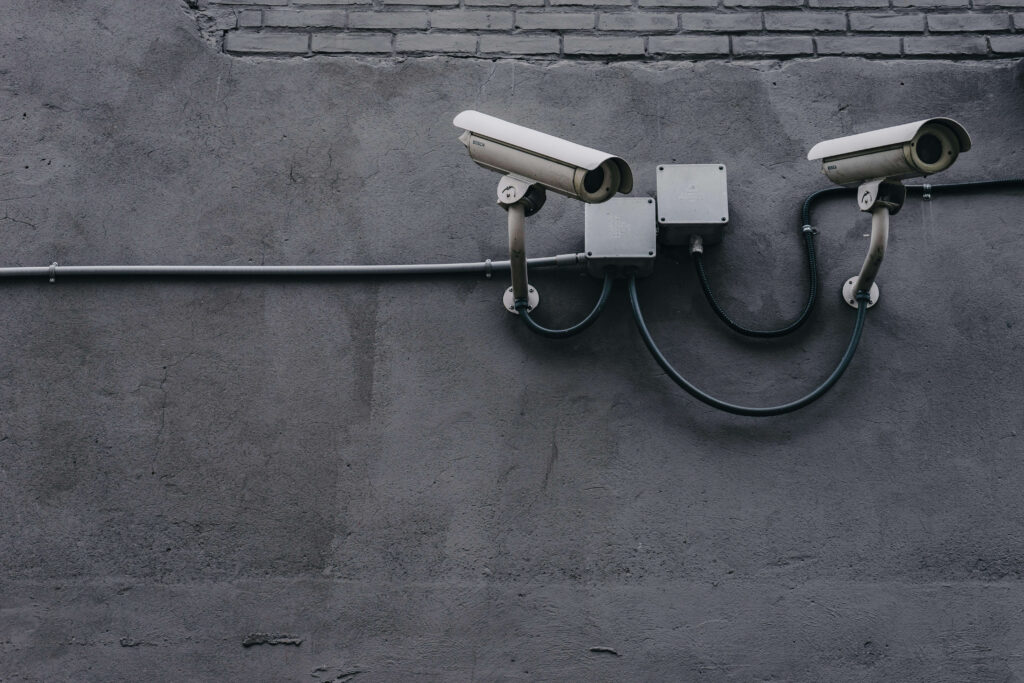
However, even in this case, it’s better to use a VPN than not to use one at all. Without a VPN, you still run the risk of hackers gaining access to your data. This applies to businesses as well, as they use these VPNs to ensure their client data remains secure. While this is not the original purpose of VPNs, it’s still better to have some protection than none at all.
Can You Get Fined Or In Trouble for Using a VPN?
Yes, you can get into trouble or be fined for using a VPN, but this depends on the specific situation. It all depends on the laws of your country and what you use the VPN for. If you live in one of the countries mentioned earlier, you probably already know the risks. You could face large fines or, in the worst case, even imprisonment.
However, if VPN use is legal in your country, there’s generally nothing to worry about. At least as long as you’re not using it to hide illegal activities. If you’re just using it for regular internet use or the purposes we discussed earlier, there is usually no real risk.
The only issue that might arise is that certain accounts (like on Binance or other platforms) could be blocked if you use a VPN in a way that violates their terms of service.
And if you live in a country where VPN usage is restricted or punished, it’s important to use a VPN that is difficult to detect by authorities. For example, NordVPN offers obfuscated servers designed to hide the fact that you’re using a VPN.
Are VPNs Safe to Use?
Yes, VPNs are safe to use. However, there is a big difference between VPN providers. To make sure you choose a trustworthy one that doesn’t keep logs, check out our recommended VPNs page.
The main difference between VPNs often comes down to whether they keep logs or use poor encryption, which increases the risk of data leaks. If a VPN keeps logs, it means they store the personal data you’re trying to protect on their servers. This data can be sold behind your back or handed over to governments upon request.
This is especially common with free VPNs, which are usually not worthy of your trust. Free VPN providers often lack the budget to maintain strong security and are more likely to use weak encryption.
Paid VPN services, on the other hand, typically have the resources to invest in security and regularly improve their systems. Many trusted VPNs also offer extra features like a kill switch or double VPN to ensure you’re always protected.
So, as long as you choose a reliable provider and use common sense, VPNs are absolutely safe to use.

How VPN Usage Is Detected And How Bans and Laws Are Enforced
Generally, a VPN can be detected by its specific way of transmitting data. This can be recognized through a technique called Deep Packet Inspection (DPI). With this method, some characteristics of VPN traffic can be identified.
Another way to detect VPN usage is through blacklists. Certain known VPN servers and their IP addresses are added to these lists. If someone connects using one of these IPs, it’s clear they’re using a VPN.
Streaming services like Netflix can also detect VPNs by observing how many users connect through the same IP address or how quickly your location changes. Fortunately, many modern VPN providers are very good at bypassing these detection methods, allowing you to continue using your VPN without interruption.
How to Bypass VPN Blocks and Government Restrictions
The basic way to bypass any restrictions is by changing your virtual location to a country where the restriction doesn’t apply. Here’s how it works: your device sends your data to your VPN’s server, and from there, it’s forwarded to the website you’re trying to access. As a result, the website thinks you’re located in the country of the VPN server.
However, sometimes a VPN can be blocked by the website, app, or streaming service you’re trying to use. This usually happens if they detect you’re using a VPN. To get around this, it’s often effective to switch your VPN server to another location until the block is no longer triggered. That’s why it’s important to use a VPN with a wide range of servers, so you can easily switch if needed.
One thing I hope is clear by now, never use a free VPN or one that’s approved by a government. These services often store your data and offer poor quality protection and weak capabilities for bypassing restrictions or censorship.
If you want to stay as safe as possible while bypassing restrictions without being detected, make sure to use a VPN that includes at least one of the following features:
Obfuscated Servers
These servers are designed to be unrecognizable. The way normal internet traffic and VPN traffic appear can differ, and this is partly how services detect VPN usage. But obfuscated servers make your encrypted VPN traffic look the same as regular internet traffic. This way, it’s not recognizable that you’re using a VPN.
Double VPN
A Double VPN can be very important if you want to make sure you’re protected at all times. It connects you to two different servers, your traffic first goes to the first server, then to the second, and finally to the website you’re trying to visit. This creates double encryption, so even if one server fails, your connection remains anonymous.
Kill Switch
A kill switch is an absolute must when it comes to online security. When using a kill switch, you don’t need to worry if the VPN connection drops. As soon as this happens, the kill switch will disconnect you from the internet. This prevents your data and IP address from leaking and ensures that information is only sent when the VPN connection is secure.
Dedicated IP Address
A dedicated IP address can be useful if you don’t want to use a shared IP. Some websites or government services block shared VPN IP addresses. A dedicated IP address helps prevent you from being blocked and gives you a more stable and private connection.
As you can see, there are plenty of options to use a VPN without being recognized as using one, in case this is necessary. And if you live in a country where the consequences are serious, it’s highly recommended to be this cautious. You should make sure to do your research and choose a trustworthy VPN that offers the right features.

Frequently Asked Questions (FAQs)
Below we answer the most frequently asked questions about whether a VPN is legal or not, so you can quickly get clarity on how it works and what to look out for.
Are VPNs legal In The UK?
Yes, using a VPN is completely legal in the United Kingdom. Many individuals and businesses use VPNs to protect their online privacy, access geo-restricted content, or work remotely. However, using a VPN to commit illegal activities (such as copyright infringement or cybercrime) is still against the law, regardless of whether you’re using a VPN.
Are VPNs legal In The US?
Yes, VPNs are legal in the United States. In fact, they are commonly used by companies and individuals to ensure secure internet connections and maintain privacy. However, as with most countries, using a VPN doesn’t make illegal activities legal. So while the tool is legal, your actions still need to comply with U.S. laws.
Are VPNs Legal In Turkey?
VPN usage in Turkey is restricted but not fully illegal. The Turkish government has blocked access to many VPN providers in the past, especially during times of political unrest or censorship. However, many people still use VPNs in Turkey to access banned content or social media. Just be aware that using one might violate local regulations or draw attention from authorities.
What Are The VPN Laws In The UAE?
In the United Arab Emirates, VPN use is technically legal, but heavily regulated. Using a VPN to access government blocked services (such as VoIP apps or certain websites) is considered illegal and can lead to heavy fines. If you’re using a VPN for harmless activities like encrypting your connection or accessing work systems, it’s usually not a problem. However, misuse can carry legal consequences.
Is It Legal to Stream Netflix or Hulu With A VPN?
Using a VPN to stream services like Netflix or Hulu is generally not illegal, but it often violates the platforms’ terms of service. These companies try to block VPN IP addresses to enforce regional licensing rules. While you’re unlikely to face legal trouble, your account could be limited or temporarily blocked if they detect VPN usage.
Can I Get in Trouble for Using A VPN?
In most countries, simply using a VPN is not a problem. However, if you live in a country where VPNs are banned or if you use a VPN to hide illegal activity, you could get into legal trouble. In regions with strict internet censorship, like China, Russia, or the UAE, using unauthorized VPNs might carry fines or other penalties.
Are VPNs Safe to Use?
Yes, VPNs are generally safe to use if you choose a reputable provider. Trusted VPNs encrypt your internet traffic, protect your IP address, and offer extra security features. However, free or unknown VPNs might log your data, sell it, or expose you to security risks. It’s important to choose a provider with a no-logs policy and strong encryption.
Are VPNs Legal for Crypto Transactions?
In most countries, using a VPN for crypto transactions is legal and even recommended to improve your online privacy. However, some crypto platforms may block VPN users due to security concerns or regulations. In countries where cryptocurrency is banned or tightly controlled, using a VPN to access exchanges could be considered illegal.
Is Surfshark Illegal?
No, Surfshark is not illegal. It’s a popular VPN provider that operates legally in most parts of the world. However, in countries where VPNs are restricted or banned, using Surfshark (or any VPN) might be against local regulations. Always check the laws of your specific country before using a VPN.
Is NordVPN Legal?
Yes, NordVPN is legal and widely used around the world. It’s one of the most trusted VPN providers and complies with international privacy standards. Like any VPN, its legality depends on local laws. In most countries, including the US and EU, using NordVPN is perfectly legal.

